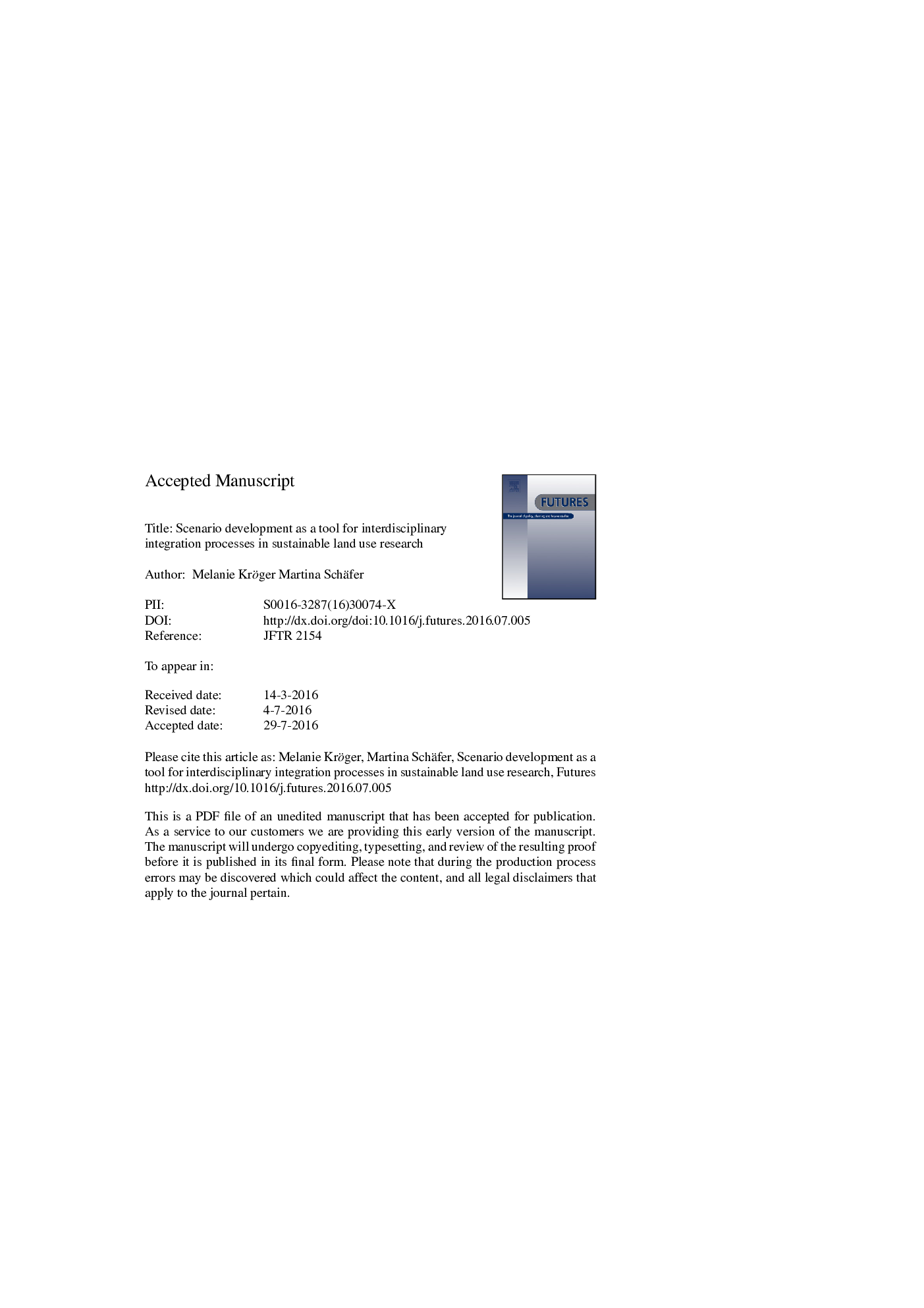| Article ID | Journal | Published Year | Pages | File Type |
|---|---|---|---|---|
| 5109208 | Futures | 2016 | 29 Pages |
Abstract
Highlighting emergent challenges and opportunities for interdisciplinary integration via scenario development, we demonstrate how content and presentation of the scenarios were modified on the basis of inputs from involved researchers of different disciplines. Through an iterative process, the originally qualitative and rather general scenarios of land use changes have been enriched by quantitative data from different sub-projects and presentation of narrative stories complemented by GIS maps, leading to better integration of results from the sub-projects. Our results show that scenario development processes have to be planned carefully if they aim at integrating interdisciplinary knowledge. In the ELaN consortium, lack of resources available to a sub-project were compensated for by referring to other additional expertise and resources throughout the process. We reflect upon such modifications and identify success factors for the organization of such processes, concluding that scenarios are suitable for interdisciplinary integration in three ways: a) scenarios facilitate the compilation and recombination of existing knowledge and create a new, commonly shared frame for formerly separated knowledge; b) joint scenario development fosters social integration among researchers with different disciplinary backgrounds and supports group building processes and; c) scenarios are able to link new results of different sub-projects and researchers into a joint product which, ultimately, strengthens the integrative character of the project as such.
Keywords
Related Topics
Social Sciences and Humanities
Business, Management and Accounting
Business and International Management
Authors
Melanie Kröger, Martina Schäfer,
